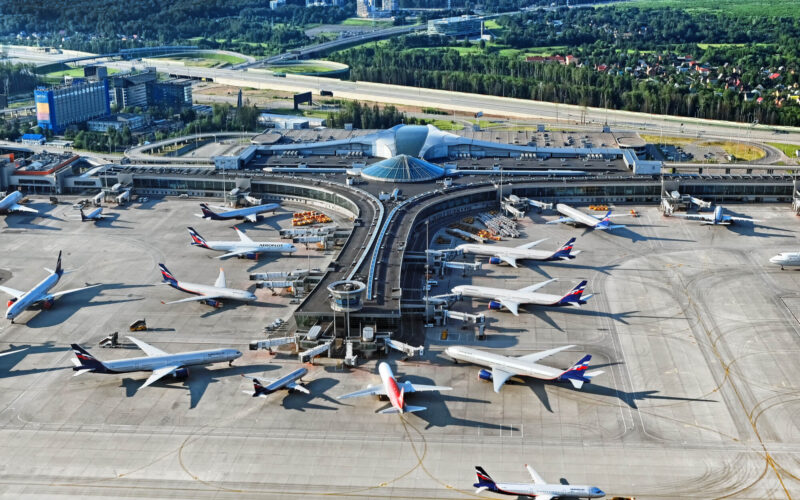Leasing companies are unlikely to be able to reclaim their aircraft from Russia while the current war in Ukraine goes on, leasing experts believe.
Sanctions imposed on Russia after its invasion of Ukraine require lessors to terminate lease contracts in Russia by March 28, 2022. However, getting the aircraft back will be a different matter.
Added to airspace closures are reports that Russian authorities have recommended their airlines avoid operating to foreign destinations with leased planes, probably to mitigate the chance of the planes being seized while on the ground outside of Russia.
There have also been reports that authorities have been discussing re-registering aircraft owned by foreign lessors, effectively nationalizing the aircraft, and recommending operators keep all the technical documents to hand. Many of the aircraft leased to Russian airlines are registered in Bermuda.
“We will help the carriers keep their fleets of foreign aircraft,” Russian Prime Minister Mikhail Mishustin said in a cabinet minister meeting on March 9, 2022.
Lawyers and leasing experts discussed the situation in an online webinar organized by Aeroclass, an e-learning platform focused specifically on the aviation market.
“From the information we have now, it seems that the Russian government has ordered the Russian airlines not to cooperate with their lessors. In terms of the future impact of this, I don’t see the lessors getting their aircraft back any time soon,” stated Donal Hanley, Aeroclass instructor and Professor of Air and Space Law.
For example, the Air Current reported that Aeroflot flight 401 from Moscow to Cairo made a mid-air decision to return to Russia on March 2 to avoid the aircraft being repossessed by its owner in Egypt.
“The only hope of seeing the aircraft again is resolution of the current relations between Russia and Ukraine. Until they are solved, I don’t think these aircraft will be seen again,” Hanely added.
Tadas Goberis, chief executive of leasing company AviaAM Leasing, said while legal steps could be taken to reclaim the aircraft, the physical location of the aircraft was the major stumbling point.
“In my eyes, without cooperation from the other side, repossession is impossible,” he stated.
Consultancy IBA said on March 1, 2022 that it had identified 589 aircraft operated by Russian airlines and owned by lessors based outside of Russia, that have been impacted by the crisis. As of the end of February 2022, IBA said 80% of those aircraft were located in Russia.
Cannibalizing aircraft
With many aircraft manufacturers and maintenance companies having said they will halt support for Russian companies, the experts believe the lessor’s planes could be at risk of being stripped for parts if they remain in Russia.
“What will happen is, if they are unable to obtain certificated parts, they will start cannibalizing the aircraft that are within Russia and it is in their interest to start with the aircraft they don’t own,” Hanley predicted.
Hanley said this is another reason why lessors will be considering filing for total losses on the aircraft leased to Russia airlines. “Whatever’s left usually isn’t very pretty. It looks like a crime scene. In fact, it is a crime scene.”
The next step is the insurance question, Hanley pointed out, saying that if the insurers have to bear the cost of the lessors losing the aircraft, then Russia would join North Korea and Iran as being places where lessors wouldn’t be able to do business.
Patrick Honnebier, Professor of International Aviation Financing and Leasing Laws, said he was not sure how the insurers would react. “In the past insurance companies have paid when aircraft were not returned but that was individual cases. What can you say about this situation?” he asked.
Hanley said he expected the insurance companies and lessors would be lobbying the EU Commission to highlight that they were bearing the brunt of the sanctions, rather than the Russians.
Tainted business
The current situation could change the leasing market forever, predicted the experts on the webinar.
Hanley recommends lessors will need to protect themselves more in the future by paying greater attention to jurisdictional risk, insist more on overseas registration and by making sure they have aircraft records backed up in real time.
“If the airlines will not cooperate in any way and get the assets back to the owners, I doubt anyone will consider leasing into Russia in the future,” AviaAm’s Goberis said.
Hanley and Goberis highlighted that Russian operators and companies had been very cooperative in recent years as they sought to improve the country’s reputation and improve access to the leasing market.
“Some of the parties and the privately owned airlines would be willing to cooperate but then we have this political aspect where they will not be empowered to make their own decisions,” Goberis said. “Our experience with Russian operators was really good, but we are victims not of that part of the business, but of the politics, which can ruin everything overnight.”

